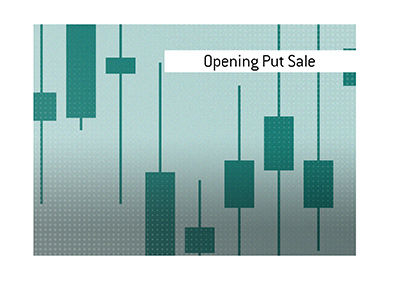Definition of Opening Put Sale
What is an "opening put sale"? What is the definition of the term "opening put sale"?
In the world of options trading, an "opening put sale" (or put sale to open) occurs when somebody sells puts on a stock, speculating that the stock will close above the strike price by expiration.
If this occurs, the person or company who initiates the "opening put sale" will get the premium generated from the sale.
 Let's take a look at an example of an opening put sale:
Let's take a look at an example of an opening put sale:The stock with the fictional symbol XYZ has fallen from $100 to $50 over a couple of months.
A major hedge fund decides that they are going to start scaling into the stock, but they fear that it might fall a bit more.
The fund decides that they are going to sell puts that expire in a year at a strike price of $40.
The fund sells 1,000 $40 puts that expire in a year, and they take in a premium of $6.70 per contract.
Assuming that the fund doesn't buy back the puts prior to expiry (which they have the option to do), one of two things will happen:
1. The stock closes above $40.
If this happens, the puts will expire worthless and the fund will keep $6.70 per contract in premium.
2. The stock closes below $40.
If this happens, the fund will be assigned 100,000 shares at $40 per share.
It's important to note that the fund will still keep the $6.70 in premium, which would lower their breakeven price to $33.30 per share.
-
So, as you can see, selling puts can be a great way to gain exposure to a stock that may have further to drop.
--
Davemanuel.com Articles That Mention Opening Put Sale:
None
